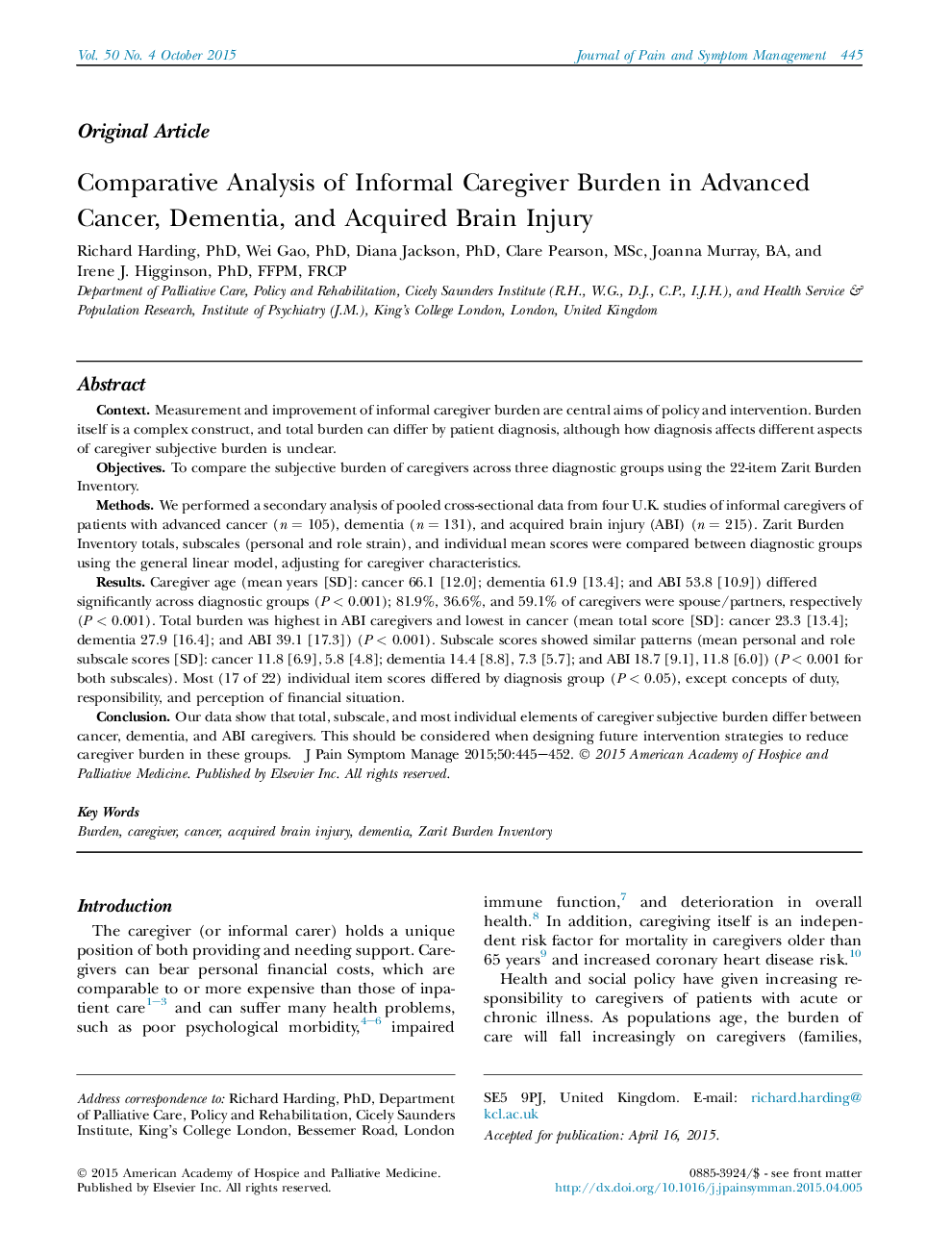| کد مقاله | کد نشریه | سال انتشار | مقاله انگلیسی | نسخه تمام متن |
|---|---|---|---|---|
| 5879646 | 1147184 | 2015 | 8 صفحه PDF | دانلود رایگان |
ContextMeasurement and improvement of informal caregiver burden are central aims of policy and intervention. Burden itself is a complex construct, and total burden can differ by patient diagnosis, although how diagnosis affects different aspects of caregiver subjective burden is unclear.ObjectivesTo compare the subjective burden of caregivers across three diagnostic groups using the 22-item Zarit Burden Inventory.MethodsWe performed a secondary analysis of pooled cross-sectional data from four U.K. studies of informal caregivers of patients with advanced cancer (n = 105), dementia (n = 131), and acquired brain injury (ABI) (n = 215). Zarit Burden Inventory totals, subscales (personal and role strain), and individual mean scores were compared between diagnostic groups using the general linear model, adjusting for caregiver characteristics.ResultsCaregiver age (mean years [SD]: cancer 66.1 [12.0]; dementia 61.9 [13.4]; and ABI 53.8 [10.9]) differed significantly across diagnostic groups (P < 0.001); 81.9%, 36.6%, and 59.1% of caregivers were spouse/partners, respectively (P < 0.001). Total burden was highest in ABI caregivers and lowest in cancer (mean total score [SD]: cancer 23.3 [13.4]; dementia 27.9 [16.4]; and ABI 39.1 [17.3]) (P < 0.001). Subscale scores showed similar patterns (mean personal and role subscale scores [SD]: cancer 11.8 [6.9], 5.8 [4.8]; dementia 14.4 [8.8], 7.3 [5.7]; and ABI 18.7 [9.1], 11.8 [6.0]) (P < 0.001 for both subscales). Most (17 of 22) individual item scores differed by diagnosis group (P < 0.05), except concepts of duty, responsibility, and perception of financial situation.ConclusionOur data show that total, subscale, and most individual elements of caregiver subjective burden differ between cancer, dementia, and ABI caregivers. This should be considered when designing future intervention strategies to reduce caregiver burden in these groups.
Journal: Journal of Pain and Symptom Management - Volume 50, Issue 4, October 2015, Pages 445-452
